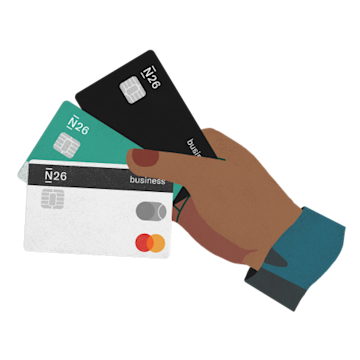
Freelancing 101: A Complete Guide to Getting Started and How it Works
Freelancing is working independently for multiple clients rather than being exclusively employed by one company. As a freelancer, you provide specific services or skills to various clients on a project-by-project basis, maintaining control over your work schedule and client selection.
Starting a Freelance Business
To begin freelancing legally, you need to:
- Register your business with local authorities
- Choose a legal entity (Sole Proprietorship or LLC)
- Set up an accounting system for invoicing and expenses
- Obtain appropriate insurance coverage
- Open a dedicated business bank account
- Build a client network
- Create a standard contract template

Hand holding blue business card
Key Advantages of Freelancing
- Complete flexibility in work schedule and location
- Freedom to choose clients and projects
- Direct profit retention
- Control over work-life balance
- Potential for higher earnings

Person writing at wooden desk

Nine illustrated budget planning squares

Brown leather messenger bag
Challenges to Consider
- Self-management of all business aspects
- Potential income instability
- Responsibility for own benefits and insurance
- Professional isolation
- Managing multiple client relationships
- Administrative workload
Essential Tips for Success
- Maintain a consistent marketing presence
- Build an emergency fund for irregular income periods
- Develop strong time management skills
- Create a professional network
- Invest in ongoing skill development
- Establish clear client boundaries
- Keep detailed financial records

Hand holding business credit cards

Person at desk with houseplant

Man writing at wooden desk

Person at desk with houseplant

Man typing on laptop at desk
Related Articles
10 Proven Ways College Students Can Make Extra Money
